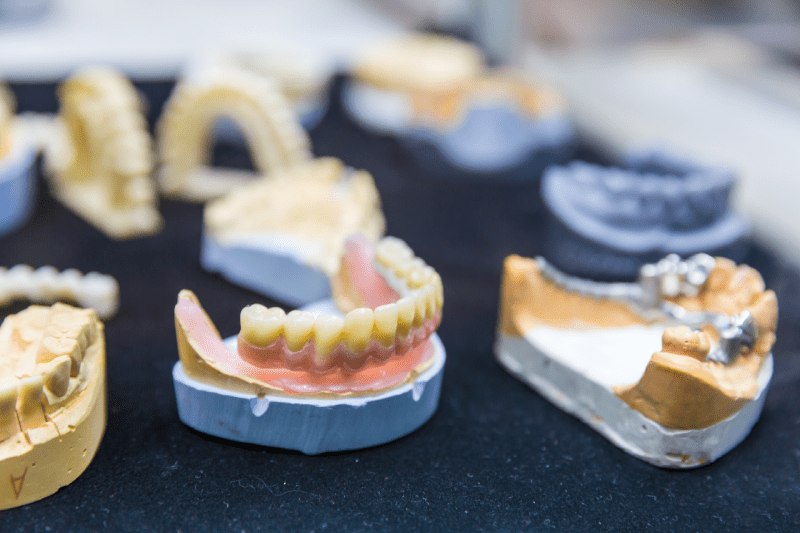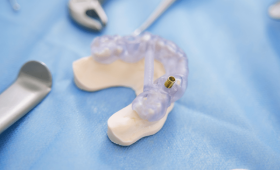Can I Get Veneers If My Teeth Are In Bad Condition?
Most people think that dental veneers are only used to fix minor cosmetic issues. However, they can also be a great solution for teeth that are mildly or moderately damaged. This content provides a comprehensive guide by answering the 35 most frequently asked questions from patients with bad teeth, covering the suitability, risks, and potential outcomes of veneer treatment.
Are Badly Damaged Teeth Suitable For Veneers?
The degree of “bad condition” of your teeth is a determining factor for veneer treatment. Problems like mild wear, small cracks, or discoloration can be successfully fixed with veneers, giving you a beautiful smile. However, if your teeth have severe decay, large fractures, or advanced gum disease, these issues must be treated before getting veneers. Veneers offer a cosmetic solution, but they don’t fix the underlying dental problems. Therefore, having good overall oral health is the most important prerequisite for a successful and long-lasting treatment.
Can I Get Veneers On Decayed Teeth?
No, you cannot get veneers directly on actively decayed teeth. Before the veneer procedure, the decay must be completely removed, and the tooth must be restored with methods like fillings or root canal treatment. A veneer needs a healthy and clean tooth structure to bond to securely. If a veneer is placed on a decayed tooth, the decay will continue to progress underneath the veneer, leading to more significant dental problems and causing the veneer to fail prematurely.

Can I Get Veneers If I Have Gum Disease?
No, you cannot get veneers until your gum disease (periodontal disease) is treated. Healthy gums provide a stable foundation for the longevity of veneers. Gum disease can cause receding gums, bleeding, and infection. These conditions make it difficult to place veneers correctly and jeopardize the success of the treatment. Therefore, it’s essential to have your gum disease completely under control before starting the veneer procedure.
Can I Get Veneers If I Have Missing Teeth?
Dental veneers cannot be used directly to replace missing teeth. Veneers require a healthy tooth structure to bond to and are not designed to fill gaps. However, if you have missing teeth, you can combine veneers with other treatments like implants or dental bridges to improve your smile holistically. These combined treatment plans restore both aesthetics and function, giving you a complete, natural-looking smile.
Can Veneers Be Used On Very Crooked Teeth?
Mildly crooked or misaligned teeth can be corrected with veneers. Veneers can create the illusion of a straighter, more aligned smile by covering the front surface of the teeth and changing their shape. This method offers a faster cosmetic solution compared to orthodontic treatment. However, for severely crooked teeth or bite issues, veneers may not be sufficient. In such cases, orthodontic treatment (braces or clear aligners) may be necessary before veneers for a permanent solution. Your dentist will determine the right treatment plan for you.
Can Veneers Be Applied To Chipped Or Damaged Teeth?
Yes, small cracks, chips, or worn-down teeth can be restored with veneers. A veneer covers the front surface of the tooth, hiding the damaged area and providing an extra layer of protection. This helps prevent the tooth from sustaining further damage. However, if the chip is very large and threatens the structural integrity of the tooth, a full dental crown might be a more suitable solution than a veneer. Crowns provide more protection and support by covering the entire tooth.
What Procedures Are Done Before Veneer Treatment?
Before starting veneer treatment, your dentist will perform a comprehensive examination, including radiological imaging (X-rays). If there is any decay, gum disease, or other problems with your teeth, they will be treated before the veneer procedure. A minimal amount of enamel is then shaved off to prepare the teeth for the veneers, and an impression is taken. This preparation is crucial for the long-term success of the treatment and for ensuring a natural fit.
Can Veneers Fill The Gaps Between My Teeth?
Yes, small and medium-sized gaps (diastema) can be aesthetically closed with dental veneers. Your dentist can design the veneers to be slightly wider to fill the gaps and create a more uniform look between your teeth. However, if the gaps are very large, more extensive solutions like orthodontic treatment or bridges may be needed instead of veneers. The best method depends on the condition and size of the gaps in your teeth.
Do Veneers Weaken My Teeth?
No, on the contrary, veneers can strengthen your teeth. Although a minimal layer of enamel is shaved off to make room for the veneers, this amount is too small to harm the tooth’s structure. The veneer is then permanently bonded to the tooth, providing additional support and protection. This helps make chipped or worn teeth stronger and more durable. When applied correctly, veneers preserve the natural structure of the tooth.
Can I Get Veneers After An Unsuccessful Dental Treatment?
It is possible to get veneers after a previously unsuccessful treatment, but first, the reason for the failure must be identified and treated. For example, a poorly done filling or root canal may need to be redone to make the tooth suitable for a veneer. The new veneer is then applied to the tooth after these underlying issues are resolved. This not only extends the life of the new veneer but also protects the overall health of the tooth.
Can Veneers Be Used For Stained Teeth?
Yes, veneers are an excellent solution for discolored or stained teeth. Stubborn stains that cannot be removed with teeth whitening can be completely covered with veneers. Veneers are highly resistant to stains, providing you with a bright and radiant smile for a long time. You can choose the desired shade of white with your dentist before getting your veneers, allowing you to completely transform your smile.
How Long Does The Veneer Procedure Take?
The veneer procedure typically takes 3 to 7 days to complete, depending on the condition of your teeth. This process includes the initial consultation, tooth preparation, impression taking, veneer fabrication in the lab, and finally, bonding the veneers to your teeth. This fast turnaround makes it possible for international patients to combine their treatment with a vacation, making travel planning much easier.
What Is The Lifespan Of Veneers?
The lifespan of veneers depends on the material used and your oral hygiene habits. High-quality materials like porcelain or zirconium veneers can last for 10 to 15 years or even longer with proper care. Brushing and flossing regularly, and getting a dental check-up every six months, will extend the life of your veneers and ensure they remain in the best condition.
Is The Veneer Procedure Painful?
No, the veneer procedure is painless as it is performed under local anesthesia. You won’t feel any pain during the preparation of your teeth. Some mild sensitivity and soreness are normal after the procedure, but this usually disappears within a few days and can be easily managed with simple pain relievers. This ensures a comfortable and smooth treatment process.
What Happens To My Teeth Before The Treatment?
Before you get your veneers, your dentist will shave off a very small amount of enamel to make room for the veneers. This is to ensure that the veneers look flush and are the same size as your natural teeth. This minimal shaving does not cause permanent damage to your tooth and allows the veneer to fit perfectly, resulting in a natural and aesthetic outcome.
Will My Veneers Feel Like My Natural Teeth?
Yes, veneers will feel and function just like your natural teeth in your mouth. With high-quality materials and modern techniques, veneers will not affect your ability to chew or speak. You may experience a brief adjustment period of a few days, after which the veneers will feel like a natural part of your mouth.
What Factors Affect The Cost Of Veneers?
The cost of veneers varies depending on several factors, such as the type of material used, the number of teeth to be treated, the clinic’s location, and the dentist’s experience. Aesthetic materials like porcelain and zirconium are generally more expensive. All-inclusive packages can also be more economical than paying for individual treatments. Cost differences also reflect the technology used by the clinic and the additional services provided.
Are Clinics In Turkey Safe?
Yes, as long as you choose the right clinic, dental clinics in Turkey are extremely safe. Turkey has a long-standing history in medical tourism, and many clinics adhere to international patient safety standards. Reputable clinics with experienced dentists take all the necessary precautions to provide a safe and successful treatment journey for their patients.
Why Should I Choose Turkey For My Treatment?
Turkey is a popular destination for dental treatment because it combines affordable treatment with high quality. Veneers done in Turkey cost a fraction of the price of the same quality treatment in Western countries, and packages often include accommodation and transfers. This allows patients to save money while still receiving top-tier service.
Can Veneers Be Done At Any Age?
Yes, veneers are generally suitable for any individual who is at least 18 years old and has completed their dental development. This ensures that the teeth are no longer growing and are in a stable position. The most important prerequisite is good overall oral health. Your dentist will evaluate your individual case to determine if you are a suitable candidate for veneers.
Can Bad Fillings In My Teeth Be Replaced With Veneers?
Yes, old or badly done fillings can be replaced with new ones before getting veneers. The veneer will then cover the filling completely, making the tooth look and function better both aesthetically and functionally. This not only helps you achieve a more beautiful smile but also contributes to the long-term preservation of the tooth underneath the filling.

How Should I Care For My Teeth After Getting Veneers?
Caring for veneers is no different from caring for your natural teeth. You should brush your teeth twice a day, floss daily, and visit your dentist for regular check-ups. This simple routine will extend the life of your veneers. It’s also important to avoid biting hard foods and take precautions against habits like teeth grinding.
Will My Veneers Get Stained?
Porcelain and zirconium veneers are highly resistant to staining. While drinks like coffee, tea, or red wine may stain your natural teeth, your veneers will not change color. This feature gives you a bright and white smile for a long time. This quality allows veneers to maintain their aesthetic appearance, providing you with great comfort in your daily life.
What Type Of Dentist Should I Choose For Veneers?
For veneer treatment, you should choose a dentist who specializes in cosmetic dentistry or prosthetic dentistry. These specialists are experienced in smile design and will ensure that the veneers provide the best possible aesthetic and functional results. An expert dentist will analyze your facial structure and the condition of your teeth to offer you the most suitable treatment plan.
What Are The Side Effects Of Dental Veneers?
The side effects of veneer treatment are usually mild and temporary. You may experience slight sensitivity or temporary redness in your gums after the procedure. However, these risks are minimal when the procedure is done correctly and will disappear quickly. More serious side effects are very rare and are usually associated with infection or improper placement.
Do Veneers Fix Teeth Grinding Issues?
No, veneers do not fix teeth grinding (bruxism) issues. If you have a teeth-grinding habit, you should use a protective night guard recommended by your dentist to prevent damage to your veneers. This guard will extend the life of your veneers and protect your teeth from potential harm.
Is A Root Canal Needed Before Getting Veneers?
A root canal may be needed before getting veneers if your teeth have severe decay or damage. A root canal cleans out the infection inside the tooth, preserving its health and providing a stronger foundation for the veneer. This minimizes the risks of pain and infection after the veneer placement.
Do Veneers Change My Facial Expression?
Yes, dental veneers can positively change your smile and facial expression. When the shape, size, and color of your teeth are harmonized with your face, you achieve a more aesthetic and attractive look. This not only beautifies your smile but also boosts your self-confidence and makes your overall facial expression more vibrant.
How Long Does It Take For Veneers To Be Ready In Turkey?
Thanks to modern dental labs and technology, the fabrication of your dental veneers in Turkey usually takes 3 to 5 days. During this period, your dentist will place temporary veneers to protect your teeth and provide you with an aesthetic appearance. This speed is a major advantage, especially for international patients.
Will I Feel Pain When The Veneers Are Bonded To My Teeth?
Bonding the veneers to your teeth is a painless procedure. The dentist will use a special adhesive to secure the veneers to your teeth, and you will not feel any discomfort during the process. This procedure is usually completed in a few minutes, and you can return to your normal life immediately afterward.
Do Veneers Fix My Tooth Color?
Yes, veneers effectively cover permanent discoloration and stains on your teeth. The color of your new veneers can be chosen to your desired shade of white. The veneer material is designed to match your natural teeth, giving you a bright and shiny smile.
Is It Hard To Care For Veneers?
No, caring for veneers is no different from caring for your natural teeth. Regular brushing, flossing, and using mouthwash are sufficient to keep your veneers clean and healthy. This simple routine is the best way to maintain the aesthetic appearance and durability of your veneers.
How Should I Choose A Clinic?
When choosing a clinic, you should look for factors such as experienced dentists, state-of-the-art equipment, international certifications, and patient reviews. It’s important to choose a clinic that offers transparent pricing and a detailed treatment plan. The clinic’s hygiene standards and additional services are also important.
Contact Cure Holiday to find the right treatment plan to beautify your smile.



